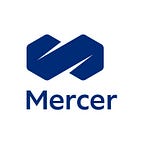DOL Shows Greater Support for DC Innovation by Offering Views on How to Include Private Equity Investments
The Department of Labor provided a boost to defined contribution plan innovation by setting out a roadmap for the inclusion of private equity investments.
By Neil Lloyd, Head of US Defined Contribution and Financial Wellness Research, Mercer
The Department of Labor (DOL) provided a welcome boost to defined contribution (DC ) plan innovation by setting out a roadmap for the inclusion of private equity (or other similar investments). On June 3, 2020, the DOL issued an Information Letter setting out its views on the use of private equity investments in DC plans, where such private equity investments are contained within a multi-asset class vehicle structured such as custom target date, target risk or balanced fund. The letter was in response to a request by Pantheon Ventures (US) L.P. and Partners Group (USA) Inc., who both offer exposure to private equity investments via collective investment trusts that contain a liquidity component to manage the cash flow requirements of DC plans.
The request specifically did not address the question whether plans could allow plan participants the option to invest in private equity themselves on a standalone basis. Notably, they also did not ask whether plans might access private equity investments in a single asset class vehicle such as a white-labeled equity fund.
The DOL’s response indicated that the inclusion of private equity in multi-asset class vehicles, narrowly considered, would not violate the fiduciary duties in terms of ERISA. In addition to caveats discussed below, a responsible plan fiduciary would need to be able to show that it had evaluated the potential risks and benefits associated with the decision to include private equity (or other illiquid investments) in their plan investment lineup.
Although the letter is not an unencumbered endorsement of private equity investments in retirement plans, it is very encouraging that the DOL is supportive of more DC-plan innovation. The industry’s response has been enthusiastic, and it is applying some of the letter’s broader principles to the consideration of other illiquid investments such as direct real estate. Interestingly, although direct real estate is already a feature of some off-the-shelf and custom target date funds, private equity is far less common.
As a firm, Mercer has been promoting the idea of allowing broader diversification of retirement plan assets for some time. In June 2019, we collaborated with the World Economic Forum (WEF) to release its third white paper, Investing in (and for) Our Future. The paper argued to allow retirement systems to invest in a broad range of alternatives, including private equity, and presented the risks and challenges that need to be overcome to deal with less liquid alternatives. (Read a shorter Q&A with the paper’s principal authors, Han Yik and Amish Gandhi, here.)
Why might private equity be attractive to DC plan participants? When accessed through a diversified investment option, such as a target-date fund, private equity may offer attractive risk-adjusted returns relative to public-market instruments, largely as a result of deal access, illiquidity premia and use of leverage. In addition, given the reduction in the number of publicly listed companies, investing in private equity may provide access to a broader opportunity set as private markets represent a significant segment of the economy.
A few caveats
To temper a responsible plan fiduciary’s enthusiasm for alternatives, the DOL letter sets forth specific issues to address during the review and documentation process:
- Will the addition of private equity enhance the risk/return profile of the investment? Fiduciaries will need to evaluate returns net of expenses which, in the case of private equity, are likely to be higher than many other investments.
- Do sponsors have the expertise to assess and monitor private equity investments, or should they consider obtaining outside expert advice or delegating some or all of the management responsibilities?
- How much should be allocated to private equity? A recent Groom Law publication notes that the DOL cited an SEC limitation of 15% for illiquid assets for registered open-end companies.
- Is the option being considered appropriately structured for a DC plan? With respect to this question, the DOL highlighted the challenges of cost, complexity, disclosures and liquidity.
- Will plan participants receive sufficient information to be able to assess the characteristics and risks of the portfolio, of which the private equity investment is a component? This is a challenging issue since the DOL sets out that the participant needs to be able “to make an informed assessment regarding making or continuing an investment in the fund.”
From our own experience, there are additional considerations that plan fiduciaries need to review: intergenerational issues resulting from performance-based fees, comfort with leverage, and corporate actions including restructurings which can challenge investment rebalancing (particularly if corporate actions occur at the same time as market volatility).
What now?
In 1952, Nobel Prize Winner Harry Markowitz declared that diversification was the only “free lunch” in investing. Both the DCIIA Custom Target Date Fund (cTDF) Survey and our own research on off-the-shelf target-date funds show that DC plan participants mostly are not benefiting from a number of asset-class diversifiers, including private equity. Now that DOL has laid out a roadmap for plan fiduciaries to follow, providers can with greater confidence develop products that will make fiduciaries’ jobs easier. And, thanks to the DOL, that is welcome news indeed.
Mercer does not provide tax or legal advice. You should contact your tax advisor, accountant and/or attorney before making any decisions with tax or legal implications. This does not contain investment advice relating to your particular circumstances. No investment decision should be made based on this information without first obtaining appropriate professional advice and considering your circumstances. Click here for the Important Notices.
